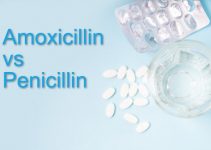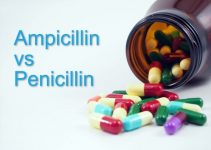It is impossible to imagine an effective therapy for infectious diseases without antibiotics in the modern world. But, despite all the benefits of antibiotics, they have some shortcomings. And if your question is do antibiotics cause constipation? – Yes, they do.
The Importance of Antibiotics
Translated from Latin, antibiotic (anti bios) means “against life.” Despite this terrifying definition, antibiotics saved hundreds of millions of lives after their invention. Literally, antibiotics are substances whose action is aimed at combating harmful bacteria. Once in a sick person’s body, they suppress the growth and multiplication of the infectious and inflammatory disease’s pathogens.
The Impact of Antibiotics on Intestinal Function
Antibiotics suppress both pathogenic and beneficial microflora that is directly involved in the digestive process. As a result, a state of microbial imbalance develops, better known as dysbacteriosis.
Constipation from antibiotics is a negative consequence of useful microflora death, consisting of bacteroids, bifidobacteria and lactobacillus. These bacteria play a significant role in secretion, absorption of nutrients, and proper intestines functioning. With the involvement of beneficial bacteria occurs:
- maintenance of protective mechanisms;
- the breakdown and absorption of nutrients;
- final protein and fat metabolism, residual digestion of food;
- excretion of toxic products of metabolism;
- excretion and absorption of water;
- formation and regulation of feces excretion.
As we all know, useful microflora plays a vital role in the everyday life activities of the body. Therefore, even a small microbial imbalance can lead to disruption of physiological processes and the appearance of unpleasant symptoms.
Constipation Symptoms from Antibiotics
Constipation is one of the possible side effects after taking antibiotics for infection and inflammatory disease treatment. Due to a disruption in the intestinal motor function regulation, the bowel emptying process is accompanied by sorenes. Often, at the end of defecation, there is a feeling of incomplete discharge of the contents. The amount of feces is significantly reduced. Moreover, they have a solid consistency and fragmented form.
Due to stool retention, rotting processes develop in the intestines. The resulting toxic substances are absorbed into the blood and often cause intoxication of the body. Thus, it can lead to partial or total lack of appetite, weakness, increased fatigue, and headaches.
Constipation after antibiotics is almost always accompanied by increased gassing, bloating, various intensity pains, and cramps in the lower abdomen. In case of anal damage, often resulting from excessive tension and passing hard feces, blood may be found in the stool.
Constipation Treatment After Antibiotics Therapy
What to do when antibiotics have made you constipated? It is the question asked by many patients after the treatment. In this situation, doctors recommend doing the following actions to restore normal digestion, intestine work, and consistency of feces.
Cleansing the Body With Sorbents
Your doctor may prescribe you oral intestinal adsorbents to neutralize harmful bacteria, products of decay of dead microflora, and other toxic substances.
Treatment of Dysbacteriosis and Restoration of Normal Intestinal Microecology
You can also use probiotics (drugs containing live lacto- and bifidobacteria) and prebiotics (a nutrient substrate that stimulates the growth and development of beneficial microflora) as recovery therapy products.
Due to the absence of enzymes, the food fibers reach the large intestine in an unchangeable form, where lactic acid bacteria break them down. In the case of microbial balance disorder, a doctor may recommend special intestinal antiseptics.
Substitution Enzyme Therapy
Medicines containing food enzymes similar to gastric, pancreatic, and intestinal enzymes stimulate the digestion of proteins, fats, and carbohydrates. These drugs improve the intestine’s function and provide accelerated recovery of normal microecology of the large intestine.
General Health Drugs
You can also take immunomodulators, vitamins, and minerals to strengthen and restore the body after taking antibacterial drugs.
Nutrition Adjustment
One of the main recommendations after treatment with antibiotics is to eat healthy food. It helps to improve the intestinal function, disrupted after the antibiotic therapy. Your meal should include vegetables, fruits, and cereals.
Besides, nutritionists recommend using fermented milk products and natural prebiotics found, for example, in corn flakes, bread, cereals, beans and peas, bananas.
To make it easier to excrete feces, drink at least 0.5-0.6 gallons of clean water per day.
Exclude bakery products made of white flour, confectionery, meat products, sauces, and sweet soda at least for a month. They impair the growth of good bacteria and stimulate inflammation in the intestines.
Physical Activity and Massage
In combination with medication therapy and healthy food, regular exercises (physical exercises, walking, swimming) contribute to the restoration of the digestive tract and the stool’s normalization.
A gentle abdominal massage is also used (especially in case of constipation in a small child). This procedure helps eliminate flatulence and painful colic, makes intestines work more actively.
Massage technique: make a circular motion clockwise on the abdomen (up to 10 repetitions for kids and up to 100 for adults).
The Use of Laxatives
If constipation after taking antibiotics can not be eliminated by diet and physical methods, your doctor may prescribe you laxatives. Various types of drugs can be used to treat constipation:
- intestinal fillers (products based on dietary fiber and plant fiber, increasing the volume of feces);
- osmotic drugs (water-holding and softening feces);
- prokinetic agents (stimulants of the digestive tract function);
- lubricating oils.
How To Prevent Constipation When Taking Antibiotics
To prevent constipation, children and adults should follow the following rules when taking antibiotics:
- use antibiotics in combination with probiotics;
- follow the nutrition plan recommended by a physician;
- drink enough water;
- take hepatoprotective drugs (meds that protect liver cells from the damaging effects of toxic substances).
In addition, if there are calls for defecation, you can not tolerate and suppress the natural process. Remember that constipation is a fairly serious problem, which should not be left unattended.
You can also watch this video to find out more about how to recover from antibiotics:

